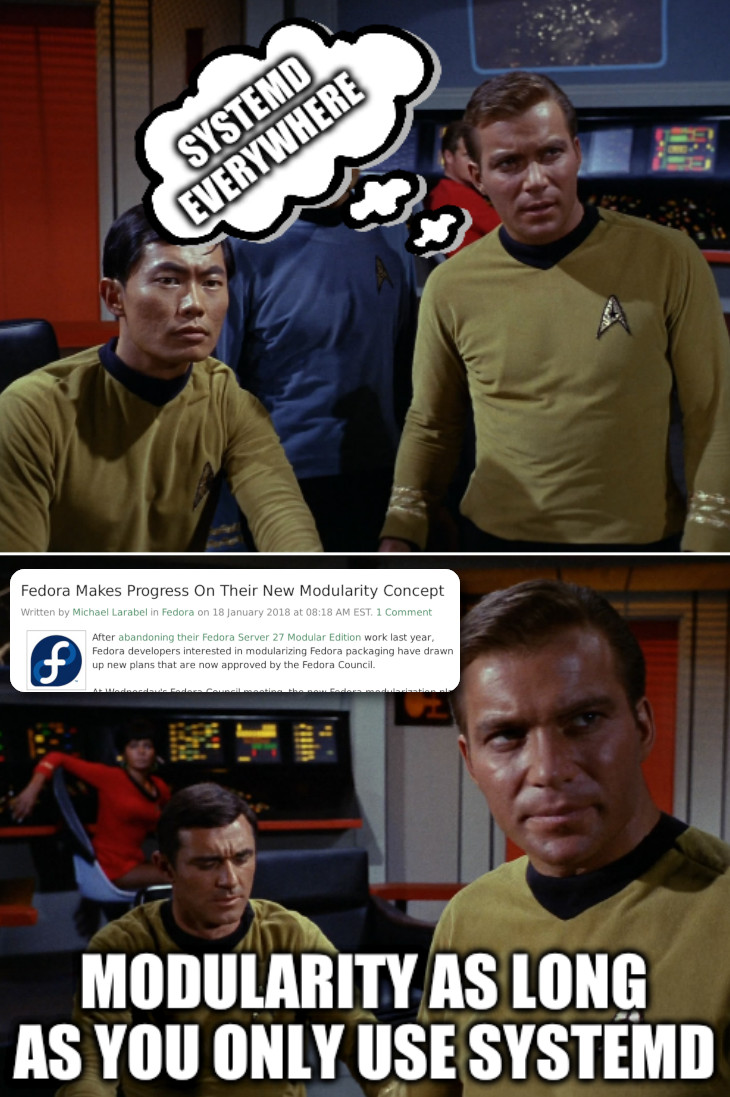

THE evil old monopolist, IBM, not only got loads of software patents from Red Hat (we wait to see if some of these patents turn up in future patent blackmail campaigns); IBM also got a lock-in or vendor exclusivity mechanism, hosted by Microsoft. Its name is systemd and by interjecting it into Debian (the father or more than half of everything!) Red Hat has already ensured that nearly all GNU/Linux distros on this planet are at least indirectly controlled by IBM. As we noted some days ago, right now Microsoft also participates in systemd development (in Microsoft's own platform, where the official project is hosted).
"IBM's roots of monopolisation are a matter of public record predating the World Wide Web."UNIX and GNU are both modular and Richard Stallman (rms) sort of emulated UNIX by building it with the copyleft/GPL 'piece-wise'. With systemd the premise or starting point is that you need some overly complex 'kernel' or 'base' with over a million lines of code. Is it modular? Sure, within itself. Does it interact or play nicely with other systems and 'alien' components? Barely.
IBM's roots of monopolisation are a matter of public record predating the World Wide Web. IBM "compatible" hardware isn't the result of IBM "openness" but IBM looking to comply or to alleviate complaints. To quote an old page from Stanford: "Until the early 1980s, International Business Machines Corporation, better known as IBM, continuously ran into anti-trust troubles due to its power over the computer industry. Because they controlled almost 70 percent of the computer market, IBM was considered by many to be a monopoly and a company with excessive powers. In January of 1969, the United States Department of Justice filed an antitrust suit against IBM to break it up into smaller competetive companies. Although this suit was not the only antitrust action against the computer powerhouse between 1960 and 1980, it was the most influential, extending over thirteen years. IBM argued that over a twenty-year period ending when the suit was filed, their share of the revenues of the one hundred top companies in the computer industry went from nearly 60 percent down to 40 percent. Over the six years of the trial, which began in 1975, 974 witnesses were called and 104,400 transcript pages were read."
It might be tempting to say that IBM is now different, frail and benign perhaps. But it employs a vast workforce and its market value was higher than Microsoft's less than a decade ago.
"We were recently told that Red Hat/IBM had stopped paying the FSF only last year or this year..."Like we said countless times before, rms (or the FSF for that matter) has said nothing negative about systemd, but rms (through FSF) is partly funded by IBM and Red Hat. We were recently told that Red Hat/IBM had stopped paying the FSF only last year or this year (verifiable by this URL; compare to last year through the Wayback Machine). An interesting development, but we can only speculate about the reasons. It's not impossible that the FSF itself decided to reject such payments. A year ago we said that such payments quite likely restricted or discouraged a strong stance on systemd. ⬆